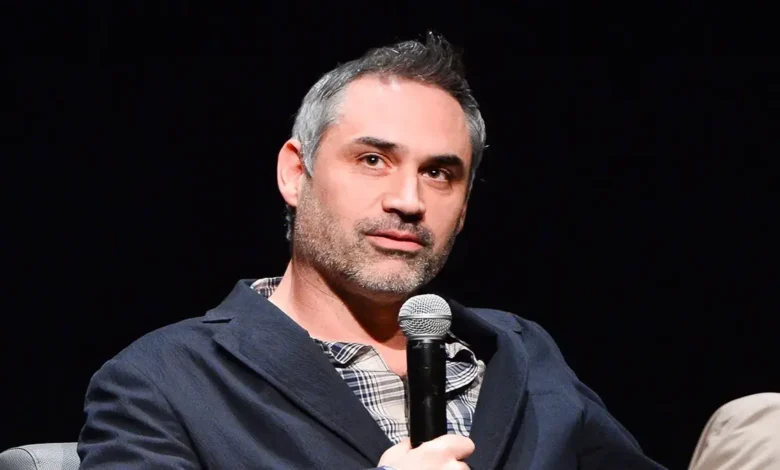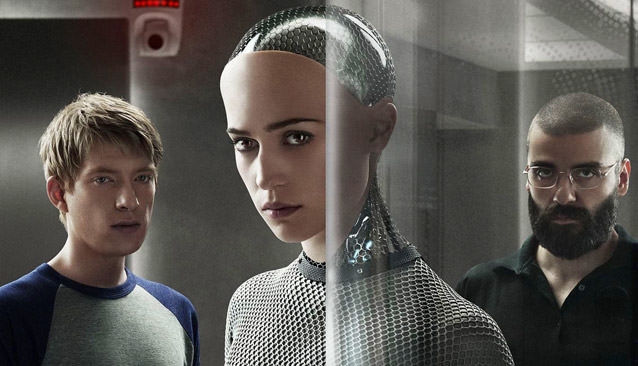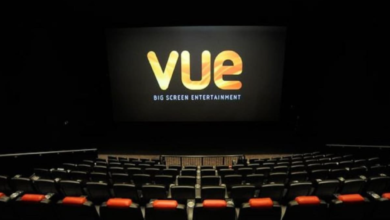Alex Garland: A Mind-Bending Journey Through Sci-Fi and Cinema

When it comes to contemporary science fiction that truly messes with your head—in a good way—Alex Garland is a name that keeps popping up. Whether he’s writing novels, scripting cult classics, or directing visually stunning and thought-provoking films, Alex Garland has carved out a unique niche in storytelling. He’s not just a filmmaker; he’s a world-builder, an idea-man, and someone who loves asking hard questions through fiction.
His work often blurs the line between artificial intelligence, dystopia, and existential dread. Yet somehow, it all feels grounded, relatable, and surprisingly emotional. From his breakthrough novel The Beach to directing Ex Machina, Alex Garland’s career has been one long, fascinating deep-dive into the nature of humanity. If you’re not already obsessed with him, buckle up—you’re about to be.
From Novelist to Screen Visionary: The Rise of Alex Garland
Before Alex Garland became a name associated with cerebral sci-fi and eerie landscapes, he was a novelist who took the literary world by storm. His first novel, The Beach, published in the late ‘90s, wasn’t just a hit—it was a phenomenon. The story about backpackers seeking utopia in Thailand tapped into millennial disillusionment in a way few other books did at the time. The novel’s success led to a film adaptation starring Leonardo DiCaprio, and Garland was suddenly on Hollywood’s radar.
But Garland wasn’t content just being an author with a film credit. He wanted to dig deeper into storytelling. His transition into screenwriting seemed inevitable. Not long after, he penned the script for 28 Days Later, a film that essentially redefined the zombie genre. It was raw, terrifying, and soaked in the kind of tension that only a Garland script could deliver. That film alone would’ve cemented his status as a major voice in genre storytelling, but Garland was just getting started.
He kept writing screenplays for other directors for a while—like Sunshine and Dredd—but it was clear he had a distinct visual style and voice. So naturally, he made the leap into directing.
Ex Machina and the Directorial Debut That Blew Everyone’s Mind

When Ex Machina dropped, it felt like a bomb went off in the world of indie sci-fi. Alex Garland wasn’t just a writer anymore—he was a director with a vision. The film, which explored the idea of AI, consciousness, and manipulation, was sleek, minimalistic, and stunningly intellectual. But it wasn’t cold. The emotional core of the film—centered around the AI named Ava—struck a chord with audiences.
It didn’t take long for critics and fans to start labeling Garland as a modern sci-fi genius. And let’s be honest, Ex Machina isn’t just a great film—it’s one of the best science fiction films of the 21st century. The storytelling is tight, the themes are rich, and the performances (especially from Alicia Vikander and Oscar Isaac) are unforgettable.
What made Ex Machina special wasn’t just the AI story. It was Garland’s ability to ask: what does it really mean to be human? He wrapped these massive philosophical questions in a sleek narrative that looked like it cost three times the actual budget. That’s part of his brilliance—he creates worlds that feel expensive and immersive, without needing Marvel-level money.
Diving Deeper with Annihilation: Garland’s Ambitious Adaptation
If Ex Machina was Garland showing us he could direct, Annihilation was him saying, “Watch what else I can do.” Adapted from Jeff VanderMeer’s novel, Annihilation is a wild, kaleidoscopic, and at times deeply unsettling exploration of biology, identity, and destruction. It’s one of those movies where you’re not sure what just happened—but in the best way possible.
With Natalie Portman leading a cast of all-female scientists into “The Shimmer,” a mysterious zone of altered reality, Garland created a cinematic experience that was haunting and beautiful. The film didn’t hold your hand, and that’s something fans appreciate. It respected the audience’s intelligence and allowed for ambiguity—something rare in today’s hyper-explained movie culture.
Garland once again showed that his stories don’t need clear villains or tidy endings. They need space to breathe and grow inside the minds of viewers. Annihilation is unsettling not because it jumpscares you, but because it unravels what you think you know about nature, the self, and transformation. It’s psychological horror dressed as science fiction, and only Alex Garland could make that work so seamlessly.
Alex Garland’s Signature Style and Storytelling Themes
One thing that sets Alex Garland apart is his consistent themes. Whether it’s a novel or a screenplay, his stories often revolve around isolation, identity, and the terrifying unknown. He loves to explore how people behave when everything familiar is stripped away. In The Beach, it’s the illusion of paradise. In Ex Machina, it’s artificial consciousness. In Annihilation, it’s a biological force that changes everything it touches.
Garland also has a way of combining high-concept science fiction with raw emotional storytelling. You’re not just watching characters figure out a sci-fi puzzle—you’re watching them break, evolve, and confront their worst fears. That emotional layer makes his work stand out from other cerebral creators.
Visually, his films are stunning without being flashy. He uses symmetry, sterile environments, and surreal effects to build tension without overwhelming the audience. The eerie quiet of his scenes often speaks louder than dialogue, and silence becomes its own form of communication in Garland’s universe.
A Bold Shift: Garland’s Political Allegory in Men and Civil War
Garland’s recent ventures show that he’s not just sticking to classic sci-fi. With Men, he stepped into horror territory, tackling themes of toxic masculinity, grief, and psychological trauma. The film was divisive, no doubt—but it was unmistakably Garland. Weird, daring, and unafraid to make viewers uncomfortable.
Then came Civil War—a film that dives into America’s political chaos with an unflinching eye. It imagines a near-future where the country is literally split down the middle, and journalists try to document the unraveling in real-time. It’s a bold film, one that touches on nationalism, journalism, and the fragility of democratic ideals.
While both films deviate from his earlier, more traditional sci-fi terrain, they still carry that signature Garland DNA: a deep interest in human psychology, morally complex situations, and world-building that feels way too real.
Alex Garland’s Influence on Modern Sci-Fi and Filmmaking

You can’t talk about modern sci-fi without mentioning Alex Garland. He’s become a staple of smart genre filmmaking, someone who doesn’t just follow trends—he makes them. Younger filmmakers often cite him as an influence, and critics routinely compare his work to greats like Stanley Kubrick and Ridley Scott.
What makes Alex Garland so influential is his commitment to thoughtful storytelling. In a cinematic world flooded with reboots, franchises, and spectacle, Garland remains focused on ideas. He doesn’t need explosions to make a point—he needs a camera, a clever script, and a few actors willing to go emotionally deep.
His influence also extends into television, with the FX mini-series Devs, another mind-bending tale of determinism, tech ethics, and quantum theory. The show didn’t just push boundaries—it melted them, and it confirmed that Garland is just as powerful in episodic storytelling as he is on the big screen.
Frequently Asked Questions About Alex Garland
Who is Alex Garland?
Alex Garland is a British novelist, screenwriter, and director best known for works like The Beach, Ex Machina, Annihilation, Devs, and Civil War. He’s known for his thought-provoking, often cerebral storytelling that blends sci-fi, horror, and psychological drama.
Is Alex Garland more of a writer or director?
Originally a novelist and screenwriter, Alex Garland has successfully transitioned into directing. Today, he’s equally respected for his writing and directing abilities, often doing both for his projects.
What is Alex Garland’s best film?
Many consider Ex Machina his best work due to its tight script, stunning visuals, and deep themes. However, fans of surreal sci-fi also rank Annihilation and Devs very highly.
Is Annihilation based on a book?
Yes, Annihilation is based on the novel of the same name by Jeff VanderMeer. Garland took creative liberties with the adaptation, making the film a unique interpretation rather than a strict retelling.
What’s Alex Garland’s latest project?
His most recent major release is Civil War, a politically charged dystopian film that explores modern America’s societal fractures.
Conclusion
Alex Garland isn’t just another sci-fi creator—he’s a genre-defying force who keeps evolving with every project. Whether he’s pulling us into AI-driven labs or the eerie stillness of a post-collapse world, Garland challenges us to think, feel, and question reality itself. His work isn’t just entertainment—it’s a mirror, often a disturbing one, reflecting our world in ways we don’t always want to see, but absolutely should.





